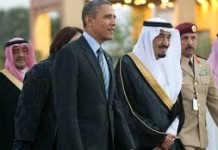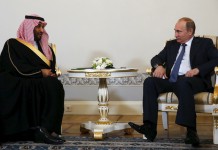Context

The discovery of large amounts of untapped mineral deposits in Afghanistan, if appropriately utilized in the coming decades, could change the fate of the war-ravaged country. It could have salubrious effects on the whole region and particularly on the Afghanistan-Pakistan relations.
The discovery announced by United States is approximately $1 trillion of worth in untapped mineral deposits, and goes far beyond any previously known reserves. However, the challenges confronted are not just related to mineral extraction but also dealing with the political and security situation of the country. Without a stable political and security environment, no country of the world can be expected to achieve its potential. This analysis of perception and perspective looks at why this news made headlines at this particular time, particularly when the existence of large deposits of minerals in Afghanistan has be known for a while.
Analysis
Changing the Traditional Perception of Afghanistan
Ever since Alexander The Great traversed the region, the traditional importance of Afghanistan is linked to its strategic location. From 17th Century onward, Russia considered Afghanistan both as a buffer region against the British Empire and a route to reach the ‘Warm Waters’ of the Indian Ocean. During the Cold War, US foreign policy emphasized ‘containing communism’ and based on that, Afghanistan had to be protected and prevented from becoming another victim of the feared Domino Effect. Even after the Cold War ended, both superpowers saw Afghanistan largely in military-strategic terms, or as a transit territory for international trade and oil and gas resources of Central Asia.
When the tussles of global players subsided, the regional players also used Afghanistan for its strategic location and extending their ideological interests. Recently, India and Pakistan have wanted to use Afghan territory as a trade or energy corridor to Central Asia, while the landlocked Central Asian countries desire getting access to the seaports of the Indian Ocean via Afghanistan.
Thus none of the global and regional players have ever been interested in Afghanistan for offering a lucrative business or economic opportunity, as it never had any economic strength. Consequently, the Afghan policies of these international and regional players have largely been influenced by the geopolitics of the region, and in it the extremely important geographical location of Afghanistan. Obviously without having a sizable and progressive economy, the state in Afghanistan, which always remained weak, could never be expected to become a thriving modern state.
Lacking the very economic wherewithal, the rural-tribal state with a subsistence economy, could not be transformed into a vibrant and strong state. However, various Afghan monarchs and regimes are themselves to be blamed for invoking and allowing global and regional players to use its territory for the pursuit of their strategies and in conflict with the interests of the Afghan state. They often did this for economic reasons.
In the backdrop of these historical and recent realities, the re-discovery of mineral deposits in Afghanistan is significant. For the first time the world could possibly take interest in Afghanistan economically and would consider the state an end in itself rather than simply a means towards the end. However, to reap any economic benefit from these mineral deposits the global and particularly the regional actors have to shun the military-specific policies towards Afghanistan.

Peace or Conflict
The discovered mineral deposits include huge veins of iron, copper, cobalt, gold and critical industrial metals like lithium. The experts are foreseeing the tapping of the deposits would transform Afghanistan into one of the most important mining centres in the world.
It is important to note that most of the minerals have been discovered in Pashtun-inhabited areas like lithium in Ghazni province and gold in south-eastern Afghanistan. The presence of deposits in Afghanistan’s Pashtun majority areas is indeed important because these are the most impoverished, marginalized and backward in terms of infrastructure and state writ.
Thus the discovery of mineral deposits in Pashtun-inhabited areas can possibly strengthen the Afghan state and pull people from other communities to these areas leading to national cohesion. Had the greater part of mineral deposits or their entire volume been discovered in non-Pashtun areas of Afghanistan, it would have led to serious ethnic tensions and conflicts. The Pashtun majority would have vied for their share in the name of Afghan state, and the other communities would consider it as usurpation of their economic rights.
At the same time, the economic potential of these large deposits of minerals could rejuvenate the Pashtunistan separatist movement. The financial return from the mineral deposits can more than sustain an independent Pashtun state. Thus these mineral deposits could also become a source of stress for Pakistan.
Timing of the Discovery
The timing of the discovery or more aptly the declaration of it at this point also needs to be looked at. It has been known for years that Afghanistan has larger mineral deposits. The news has come just a year before the US forces planned withdrawal from Afghanistan. The development and tapping of these mineral deposits would require years to complete, not possible without relative security in the country. Providing security, technology and expertise, could become the justification for the continued presence of US-NATO forces in Afghanistan. Since the motivation of this presence would be to improve the economic well being of Afghans as oppose to fighting terrorist, winning hearts and minds could become attainable.
The push and pull for the newly discovered mineral resources could be so strong and enticing that it can potentially result in altering the policies of other countries towards Afghanistan. In particular the policies of global powers as well as regional players that have had a stake in Afghanistan could change their political approach. China has already invested $3 billion into Afghan copper mines located south of Kabul. India has also contributed more than a billion dollars towards the development of the country. Pakistan is likely to gain the most due to its proximity and the infrastructure support it can provide. However, in return for offering economic opportunities in Afghanistan for Pakistan based companies, the US is likely to require full cooperation of Pakistan’s military against all brands of extremists, and curtailing of the Iran-Pakistan Gas Pipeline including Pak-China civil nuclear cooperation. The US vision for the region is premised on an India-Centric approach, and is in opposition to Iran and China.
Recently, Afghan President Hamid Karzai has expressed reservations, although in undertones, about the US and NATO commitment and earnestness to bring peace to his war-devastated country. Therefore the declaration of discovery may be an attempt by the US, particularly the Pentagon, to show its commitment to Afghanistan and its development. This will help brush aside any perceptions and perspectives that the US is not dedicated to the country and its population.
The discovery undoubtedly will energize the demoralized Karzai government and average Afghan. At the same time, it gives NATO members under stress of global recession, a purpose to stay committed in Afghanistan. For the first time in its history, Afghanistan would have an inherent economic value, not just based on its strategic location. However, for any country to reach its potential requires dealing with the challenges that impede its growth and those hurdles still persist in Afghanistan.
Tell Us What You Think
Feedback@politact.com



